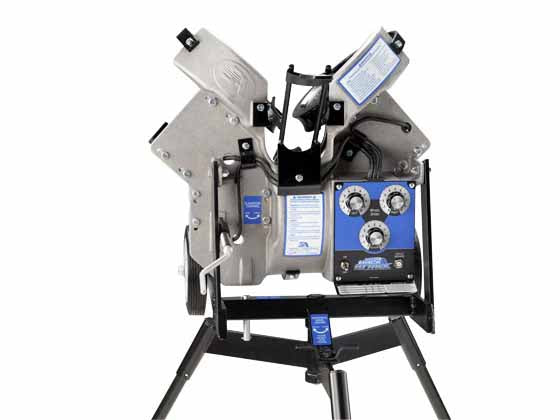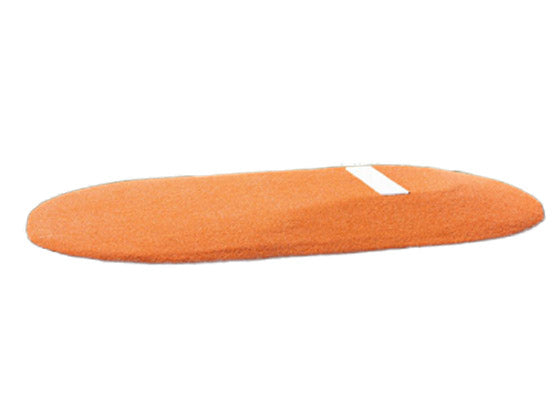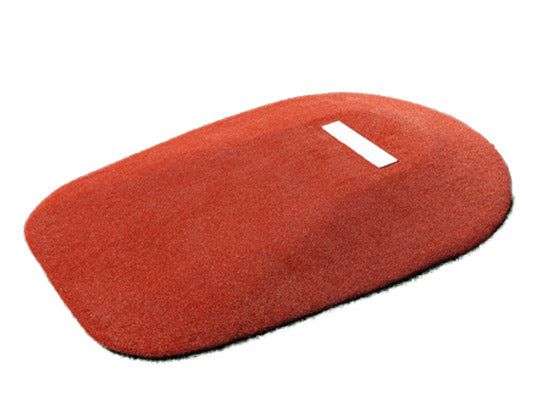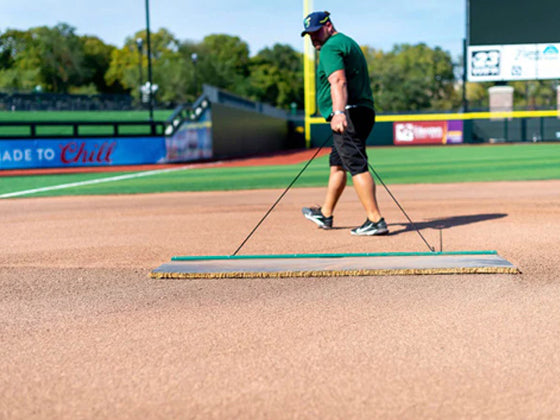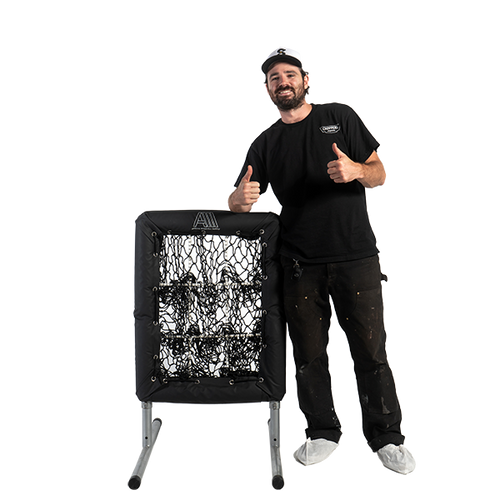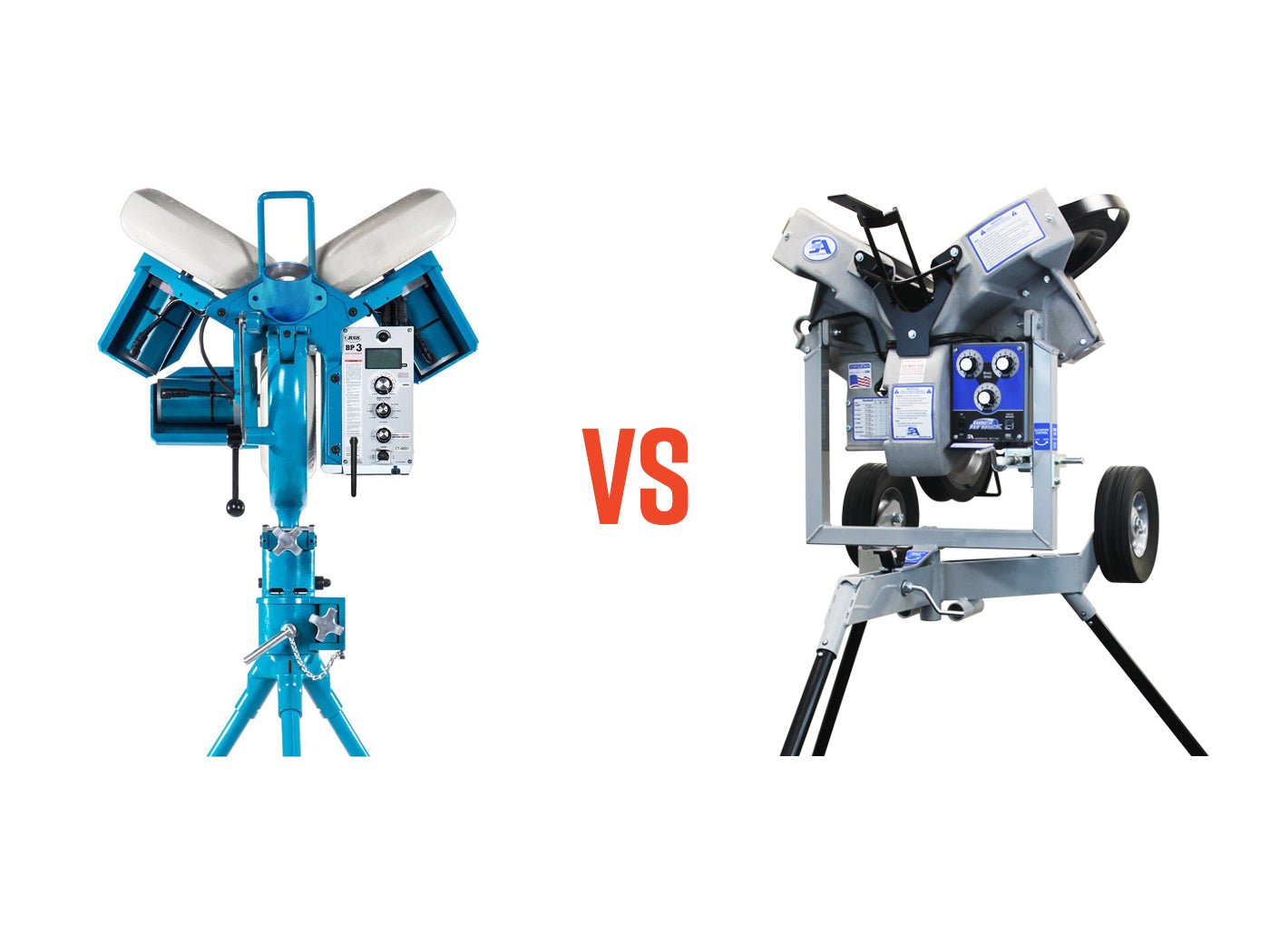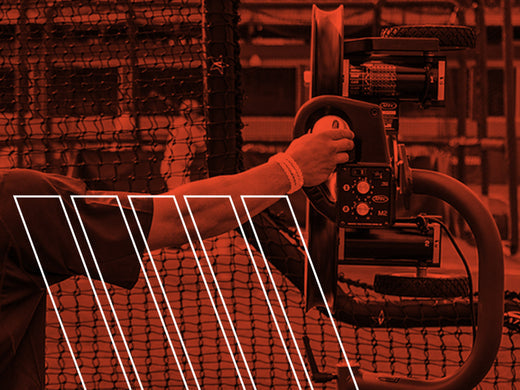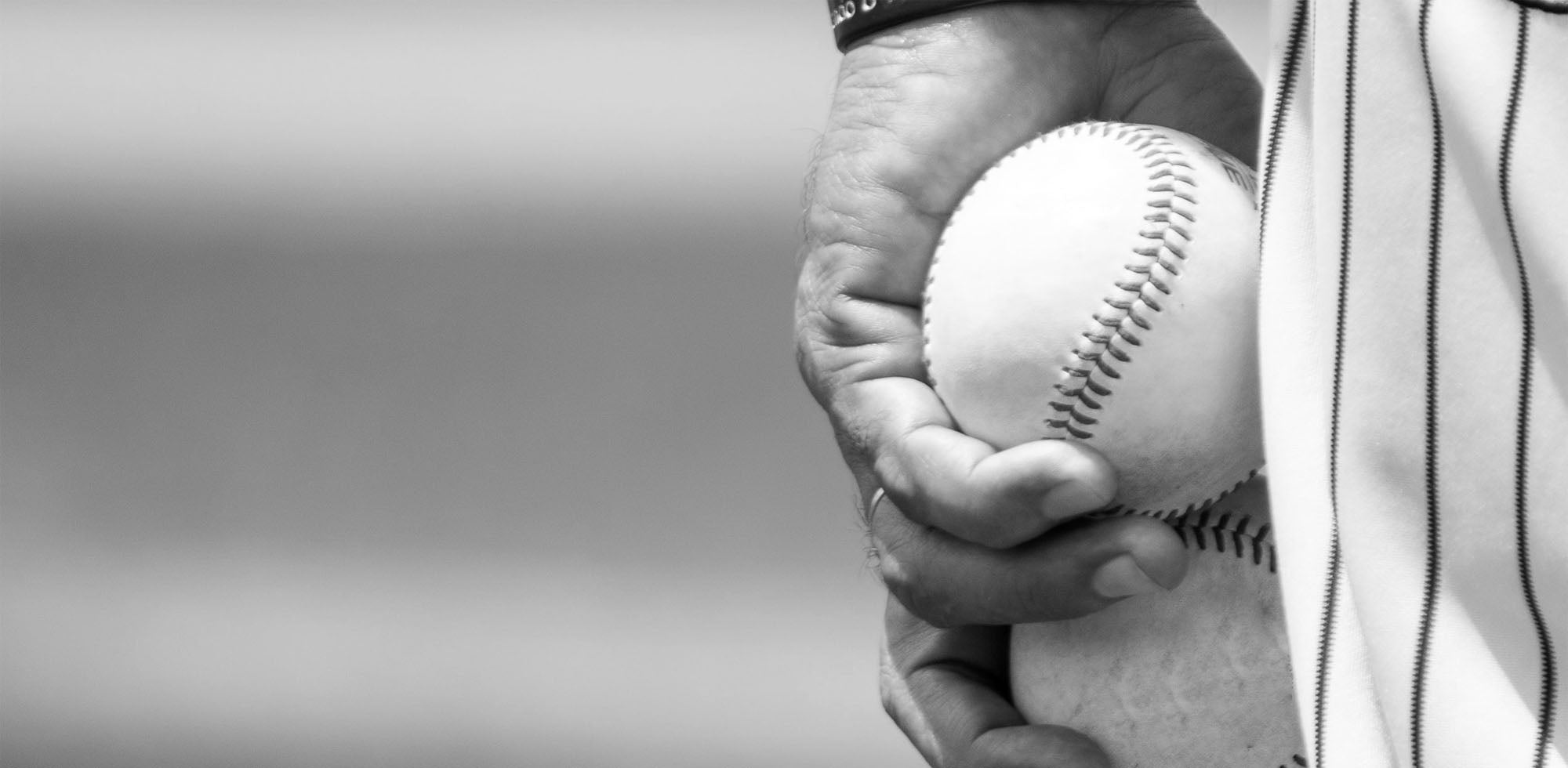The price of a pitching machine can range from $100 to $15,000. Some pitching machines are simple and, therefore, cost less, while others are highly complex and technological and, therefore, more expensive.
The cost of a pitching machine can vary widely depending on several factors. You can find basic, entry-level pitching machines at the lower end of the price spectrum for around $100 to $500. These machines often have limited features and may not be suitable for more advanced practice sessions. Although limited, you can purchase upgrades to customize your pitching machine further.
Mid-range pitching machines with additional features and better build quality typically range from $500 to $1,500. These machines offer adjustable pitch speeds, various pitch types (such as fastballs and curveballs), and better durability.
For professional-grade pitching machines with advanced features like precise speed control, multiple pitch types, and programmable settings, you can expect to pay $2,500 and up to $15,000. High-end models used by colleges, MLB teams, and professional training facilities can cost several thousand dollars.
What Drives Pitching Machine Pricing?

Understanding why some baseball pitching machines cost $200 while others hit $4,000+ comes down to a few key factors (and trust me, I’ve seen the difference firsthand after testing dozens of these machines).
Wheel Configuration Impact:
- 1-Wheel machines typically fall under $200 (budget category), perfect for basic fastball practice
- 2-Wheel systems range from $200-$1,000, offering speed control and simple breaking balls
- 3-Wheel professional units command $2,000-$4,000+ for full pitch variety, including sliders and changeups
- Arm-style throwers fall between $200-$500, ideal for younger players learning timing
Speed Range Capabilities: Machines throwing 30-40 MPH (youth level) start around $200, while units capable of 90-100 MPH professional speeds can exceed $3,000. The motor strength and precision engineering required for consistent high-velocity throws significantly impact cost.
Construction Quality: Budget models use lighter materials and basic electronics, while premium units feature heavy-duty steel frames, weather-resistant components, and advanced digital controls that last decades of intensive use.
Not sure where you fit on the spectrum? choosing between budget and professional grade pitching machines walks through the trade-offs in features, durability, and price.
Age-Specific Cost Recommendations
Ages 5-8 Years (Under $200) Young players need consistent, gentle throws around 30-40 MPH. Simple 1-wheel or arm-style machines work perfectly. Popular budget-friendly choices include entry-level Heater Sports models and Louisville Slugger youth units.
Ages 8-12 Years ($200-$500) Players developing timing benefit from 1-2 wheel machines offering 40-50 MPH speeds. Mid-range Jugs and Spinball models offer excellent value with adjustable speeds and basic curveball capabilities.
Ages 12-17 Years ($500-$2,000) High school players need advanced 2-wheel or 3-wheel systems throwing 60-80 MPH with breaking ball variety. Performance and premium Sports Attack Hack Attack models and advanced Jugs systems dominate this category.
Ages 17+ Years ($2,000-$4,000+) College and adult players require professional-grade 3-wheel systems capable of 80-100 MPH with full pitch repertoires. Professional and commercial-elite Sports Attack and BATA units deliver consistent performance for serious training.
To match pitch speed and features with player development, see choosing pitching machine for different skill levels for age-by-age recommendations.
Wheel Configuration Breakdown: Performance vs. Cost
1-Wheel Machines: Budget-Friendly Basics Starting under $200, these machines excel at consistent fastballs but can’t throw breaking balls. Perfect for tee-ball and Little League players focusing on timing and contact.
2-Wheel Systems: The Sweet Spot Ranging $200-$1,000, dual-wheel machines offer speed variation and simple curveballs. They’re the most popular choice for high school teams and serious amateur players (I’ve installed dozens of these for local coaches).
3-Wheel Professional Units: Elite Performance From $2,000-$4,000+, three-wheel systems throw every pitch type with pinpoint accuracy. College programs and training facilities rely on these for developing advanced hitters who will face 85+ MPH pitching.
Brand Comparison: Value vs. Performance
Budget Champions (Under $200):
- Heater Sports: Reliable entry-level machines with solid warranties
- Louisville Slugger: Youth-focused designs with easy setup
- Bownet: Portable options for backyard practice
Mid-Range Leaders ($200-$500):
- Jugs: Industry veteran with excellent customer support and combo baseball/softball models
- Iron Mike: Heavy-duty arm-style throwers built for team use
- Spinball: American-made precision with customizable features
Performance & Premium ($500-$2,000):
- Sports Attack (Hack Attack): Advanced systems with professional-grade features
- BATA: Durable construction for intensive team use
- Mound Yeti: Innovative designs with advanced programming capabilities
Professional & Commercial Elite ($2,000-$4,000+):
- Sports Attack (Hack Attack): Three-wheel systems trusted by MLB teams
- BATA: Commercial workhorses for batting cages and facilities
- Jugs: High-end models for professional training environments
Before you settle on a model, skim the pitching machine brand comparison to see how Jugs, Sports Attack, BATA, and others stack up on cost, speed range, and warranty.
Hidden Costs Beyond the Machine Purchase

Keep in mind that the cost of a pitching machine is not the only expense. You’ll also need to budget for baseballs or softballs compatible with the machine, protective screens or nets, and potentially a generator or power source if the machine is not electric.
Essential Accessories ($150-$400):
- Dimpled machine balls: $30-60 per dozen (regulation balls can damage wheels)
- Protective screens: $100-300 for safety nets and L-screens
- Power solutions: $200+ for generators if practicing without electricity
Ongoing Maintenance ($50-200 annually):
- Wheel replacement: $50-150 every 2-3 years, depending on usage
- Motor servicing: $100-200 for professional tune-ups
- Protective covers: $40-80 to prevent weather damage
Cost Per Practice Session Analysis
Here’s where pitching machines prove their worth (and I’ve done the math for several team budgets):
Scenario 1: Youth Team (20 players)
- $800 2-wheel machine ÷ 200 practices = $4 per session
- Compared to $50/hour pitching coach = $1,000 savings per season
Scenario 2: High School Program
- $2,000 professional machine ÷ 500 practices = $4 per session
- Replaces the need for a dedicated pitching coach during batting practice
Scenario 3: Individual Training
- $400 entry-level machine ÷ 150 sessions = $2.67 per session
- Versus $40 batting cage rentals = $5,600 savings annually
If you just want the top picks by category and budget, jump to best pitching machines and shortcut the research.
Financing and Budget-Friendly Options
Payment Plans: Most major retailers offer 6-12 month financing for machines over $500. Some programs include 0% APR for qualifying purchases (we offer Buy Now, Pay Later options for all baseball equipment).
Used Machine Market: Quality used machines can save 30-50% off retail prices. Look for recent models from reputable brands with maintenance records. Avoid machines with worn wheels or motor issues.
Rental Programs: Some facilities offer monthly seasonal rentals for $100-300, perfect for testing different models before purchasing.
Are Pitching Machines Worth It?

Although pitching machines can be expensive, yes, pitching machines are worth it. They offer consistent, versatile pitches for effective practice, helping improve batting skills and timing. Ideal for players of all levels, they’re a valuable tool for both individual and team training, providing a reliable, efficient way to enhance baseball performance and technique.
Performance Benefits:
- Consistent repetition: Perfect for developing muscle memory and timing
- Pitch variety: Breaking balls and changeups build confidence against live pitching
- Customizable difficulty: Adjust speed and location as skills improve
- Time efficiency: More quality swings in 30 minutes than most batting practice sessions
Long-term Investment Value: A quality pitching machine lasts 10-15 years with proper maintenance. For serious players, the improvement in batting average and confidence often translates to scholarship opportunities and advanced playing levels.
Conclusion
Ultimately, the price you should pay depends on your specific needs and skill level. When selecting a pitching machine, it's essential to consider your budget and intended use.
Quick Decision Guide:
- Youth players (5-8): Under $200 for 1-wheel machines
- Developing players (8-12): $200-$500 for 1-2 wheel systems
- High school players (12-17): $500-$2,000 for advanced 2-3 wheel systems
- College/Adult level: $2,000-$4,000+ for professional-grade units
- Team facilities: $3,000+ for commercial-grade machines
Remember, the best pitching machine is one that gets used consistently. Whether you choose a $300 starter model or a $3,000 professional unit, regular practice with proper mechanics will improve your game more than any expensive equipment sitting unused.

 Contact Us
Contact Us